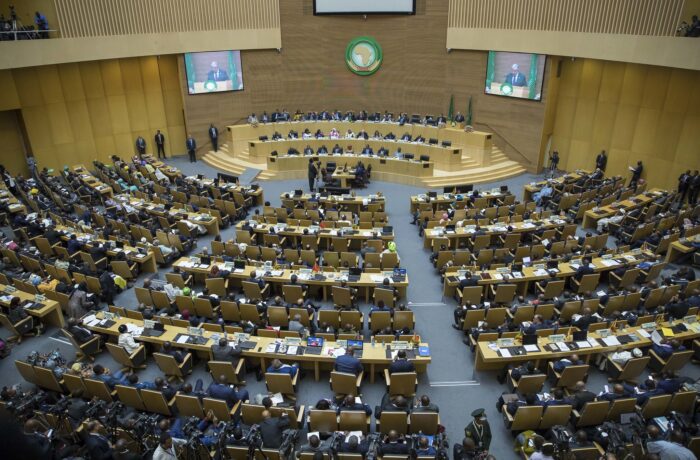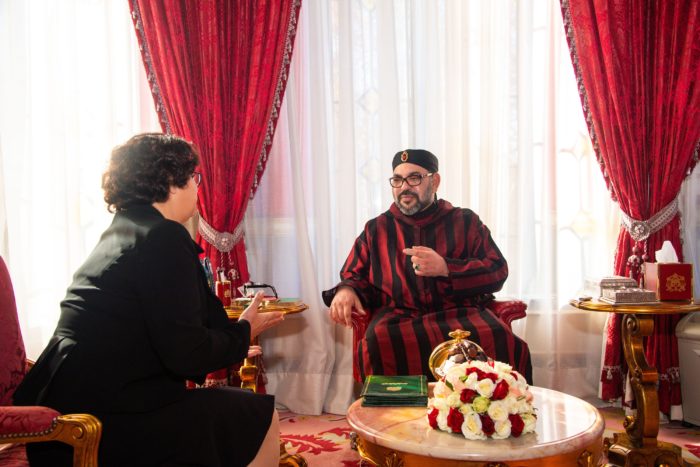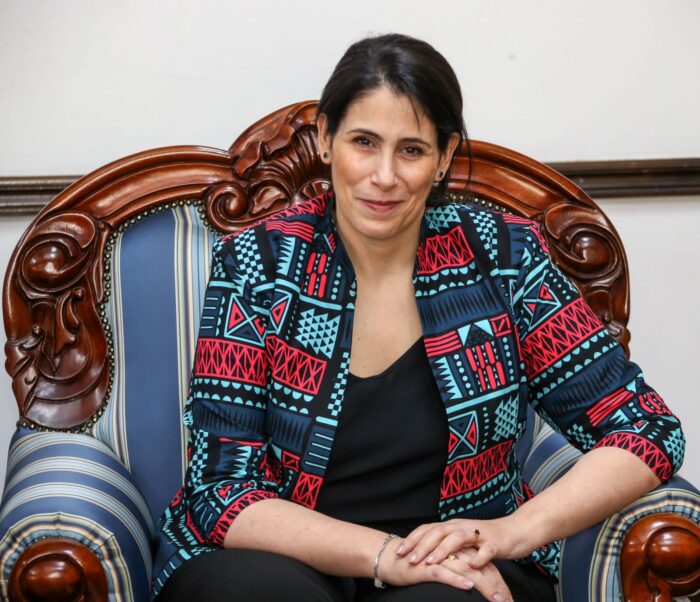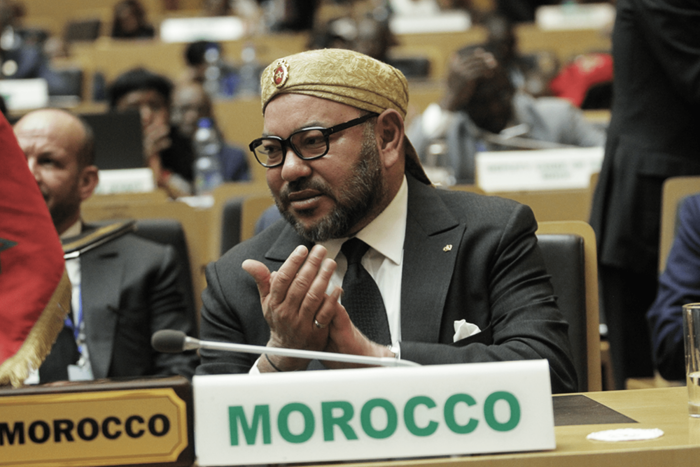In February, the African Union could witness an unprecedented showdown between Morocco and Algeria for the vice-presidency of its Commission. More than just an administrative position, this election embodies major strategic stakes: Rabat aims to strengthen its continental influence, while Algiers seeks to maintain its diplomatic weight within the pan-African organization.
This is an election that receives little attention, yet its stakes are significant. In mid-February, the 38th African Union (AU) summit could witness another showdown between Morocco and Algeria. The prize? The vice-presidency of the African Union Commission, the administrative body of the AU based in Addis Ababa, Ethiopia. In a rare occurrence, two women are expected to face off in this vote. Representing Morocco is Latifa Akharbach, the current president of the High Authority for Audiovisual Communication (HACA), who submitted her candidacy in late July. On the Algerian side stands a seasoned diplomat, Selma Haddadi.
Next February, the African Union could be the stage for an unprecedented showdown between Morocco and Algeria for the vice-presidency of its Commission. More than just an administrative position, this election embodies major strategic stakes for Rabat, eager to… pic.twitter.com/4px7qTAjc9
— TelQuel (@TelQuelOfficiel) January 9, 2025
The position at stake holds strategic significance—but not only that. The election of Latifa Akharbach could mark a new chapter in Morocco’s continental policy, eight years after its return to the AU. A victory would allow Morocco to further solidify its ties in a region of the continent where it is beginning to establish its presence. Meanwhile, a defeat for Algiers would resonate strongly within an administration where, historically, the eastern neighbor has maintained a strong foothold. These are the stakes of an election that could redefine the diplomatic dynamics of the continent.
A number two that matters
Every four years, the leadership positions within the AU’s administration, known as the AU Commission, are up for reappointment. For those familiar with European politics, this process is akin to the European elections that led to Ursula von der Leyen’s reappointment as President of the European Commission. However, in Addis Ababa, the selection of the continent’s administrative leaders is not the result of a popular vote but rather a ballot involving heads of state and government. As a result, the appointment of the Commission is more of a diplomatic affair than a political one.
Due to the candidate selection process, the election can also fuel certain regional rivalries. The African Union operates on a system of regional rotation for appointing leadership positions, distributing roles among the continent’s five subregions (North, West, Central, East, and Southern Africa). Under this system, only candidates from the North African region—comprising Morocco, Mauritania, Algeria, Tunisia, Libya, and Egypt—are eligible to run in this February’s elections.

Two other countries, in addition to Morocco and Algeria, have put forward candidates. Egypt will be represented by Hanan Morsy, a seasoned economist with experience at the United Nations Economic Commission for Africa (ECA), the African Development Bank, and the International Monetary Fund. However, according to whispers in Addis Ababa, her profile is perceived as too « arrogant. » Libya, on the other hand, has nominated career diplomat Najat El Hajjaji. Yet, weakened by internal conflicts, Tripoli struggles to assert itself on the continental stage. According to a Moroccan observer, the race is likely to culminate in a Morocco-Algeria showdown for this highly influential position.
“The vice-presidency effectively manages the administrative and financial affairs of the African Union”
The vice-president of the African Union Commission is not merely an executor of the president’s decisions. “It’s a truly important role. While the president is the face of the Commission, serving as the AU’s diplomatic representative on the international stage, the vice-presidency is responsible for effectively managing the administrative and financial affairs of the African Union,” a senior AU official explains. This includes overseeing recruitment within the pan-African administration and allocating funds across the various AU bodies. In short, it is the backbone of the AU’s operational system—one that could soon be entrusted to Latifa Akharbach.
Latifa Akharbach, Morocco’s trump card
Latifa Akharbach was the first to submit her candidacy, officially filing her application on July 22. President of the High Authority for Audiovisual Communication (HACA) for nearly seven years, she has also had a long career as a diplomat. Between 2007 and 2012, she served as Secretary of State for Foreign Affairs in the government led by Abbas El Fassi. During this period, she was committed to « defending African values and causes, » as she stated in her candidacy file.

A document in which the former Moroccan ambassador to Bulgaria and Tunisia highlights her “deep pan-African conviction,” a belief she wishes to put at the service of “building a strong, integrated, and united Africa.” Beyond grand declarations, Latifa Akharbach also delivers political messages. In her candidacy, the current president of HACA expresses her intention to streamline and enhance the efficiency of certain programs, such as AUDA-NEPAD (which serves as the African Union’s economic development agency following the merger of these two institutions), with the goal of making the AU a financially independent entity.
The Moroccan candidate positions herself in direct alignment with the reform initiated by Paul Kagame during his presidency of the African Union in 2018. The Rwandan president sought to reduce the AU’s dependence on international aid and donations. More broadly, he aimed to limit the Commission’s independence, as it had, on occasion, deployed pan-African forces to crisis zones without prior approval from member states. Historically, the Commission has been dominated by major African powers such as Algeria, Nigeria, South Africa, and Egypt.
Through Latifa Akharbach’s candidacy, Morocco appears to signal its intention to continue the reforms initiated by Paul Kagame, which the Kingdom has consistently supported. However, Rabat’s ambitions may well be challenged by Algiers, which has put forward a candidate with extensive expertise in continental diplomatic affairs.
Selma Haddadi, a continental affairs specialist for Algiers
Selma Haddadi is a familiar face to those who regularly walk the halls of the African Union. While Algeria’s top diplomats may come and go, she remains by their side during summits of the pan-African organization. She is also well known to Moroccan diplomats based in Addis Ababa, who describe her as a “fierce diplomat” often working to undermine Morocco’s diplomatic interests.

Her career has taken her through key African capitals such as Pretoria (South Africa) and Juba (South Sudan). She is well-acquainted with Addis Ababa, having served as the deputy head of Algeria’s embassy there from 2015 to 2019. She currently resides in the Ethiopian capital, holding the position of Algeria’s ambassador to Ethiopia and the African Union.
This represents a significant advantage in the race for the vice-presidency. “This election is decided in African capitals, of course, but also in the corridors of Addis Ababa,” notes an AU specialist. Haddadi has built strong connections there, notably with Kenya’s ambassador, who, according to our sources, frequently uses his platform to promote the Algerian candidate. “However, this should not necessarily be interpreted as a move by Kenya against Morocco. The true intentions will only be revealed on voting day,” the specialist adds.
In her contest against Latifa Akharbach, Selma Haddadi appears to suffer from a lack of recognition. “She is not known to the general public. More importantly, unlike Latifa Akharbach, she has never held a leadership position,” remarked a diplomat stationed at the AU in an article published by The Africa Report.
That said, she is credited with embodying the “soft” side of Algerian diplomacy, which has drawn criticism from several African capitals, particularly in West Africa. This is precisely the region where Morocco is likely to secure a substantial portion of its support in this race—one that extends far beyond the mere vice-presidency of the AU.
The stakes of a duel
For a long time, Algiers has exerted significant influence over the administration of the African Union (AU). A testament to this dominance: the near-consistent appointment of an Algerian diplomat to lead the AU’s Peace and Security Council (PSC) for nearly two decades. The PSC is a key body within the AU, functioning as its de facto African Security Council, with the authority to suspend or exclude member states. However, through relentless diplomatic efforts, Morocco eventually succeeded in removing the Sahara issue—at the continental level—from the PSC’s oversight. The Kingdom has never hidden its intention to further “cleanse” the organization from within.
For now, Rabat’s strategy in this area remains cautious, though some achievements can be credited to Moroccan diplomacy. In October 2021, thanks to Morocco’s initiative—and following a selection process by the AU—Fathallah Sijilmassi became the first Director-General of the African Union Commission. This appointment aligned with Morocco’s stated goal of acting “to advance the comprehensive reform of the AU and establish sound administrative and financial governance within the institution.” These words now resonate with the candidacy of Latifa Akharbach.
“The nomination of Fathallah Sijilmassi is far from trivial. It has enabled a stronger Moroccan presence within the African Union Commission.”
“The nomination of Fathallah Sijilmassi is far from trivial. The position of Director-General, which resulted from the Kagame reform, is the highest non-elective role to which an official can be appointed. Moreover, his appointment has strengthened the presence of Moroccans within the AU Commission at a time when its doors were previously closed to them,” emphasizes this insider familiar with the intricacies of Addis Ababa.

The election of Latifa Akharbach would confirm this trend. “It would allow Morocco to share its vision on pan-African governance, whereas previously, this issue was primarily the domain of a limited number of countries,” our source continues. More importantly, the election of the HACA president to the position of deputy head of the AU administration would enable Morocco to further curb Algeria’s already declining influence on the continent. Plagued by a series of diplomatic crises with several continental players, Algeria could simply find itself sidelined from pan-African diplomatic affairs.
The vice-presidential position is, in fact, the only one for which Algeria has been able to field a candidate. “This means that, for the first time in several decades, Algeria could find itself excluded from the management of the African Union’s administration. And that is where the most significant stakes lie for Morocco. The goal is to exclude Algeria from pan-African administrative management by 120,000%. An Algerian failure would have a greater impact on the country’s diplomacy than a Moroccan failure. Morocco has everything to gain from this election,” notes this AU expert, who requested anonymity.
Heading east
An election win for Morocco would allow the Kingdom to extend its diplomacy into new parts of the continent, thanks to the pan-African scope of the vice-presidency role. But that’s not all. “The President and Vice-President of the Commission work in tandem and do not represent only themselves. They represent their country, which automatically implies a closer relationship between the President’s country and the Vice-President’s country,” our source explains.
This year, the presidency is up for election—under the AU’s rotation principle—in the East zone. Candidates from Kenya and Djibouti are seen as frontrunners. “There’s no doubt that Morocco—already on good terms with these countries—could strengthen its ties with one of them through this election. That will be one of the goals of Moroccan diplomacy,” notes an informed observer from the department led by Nasser Bourita.
This election could not only reshape Morocco’s and Algeria’s influence within the African Union but also redefine diplomatic dynamics across the continent. Should Morocco succeed, it would achieve a major strategic step forward in its pan-African agenda, pushing Algeria into a more marginal role within the AU administration. The answer will start to become clear by mid-February.
Written in French by Yassine Majdi, edited in English by Eric Nielson




